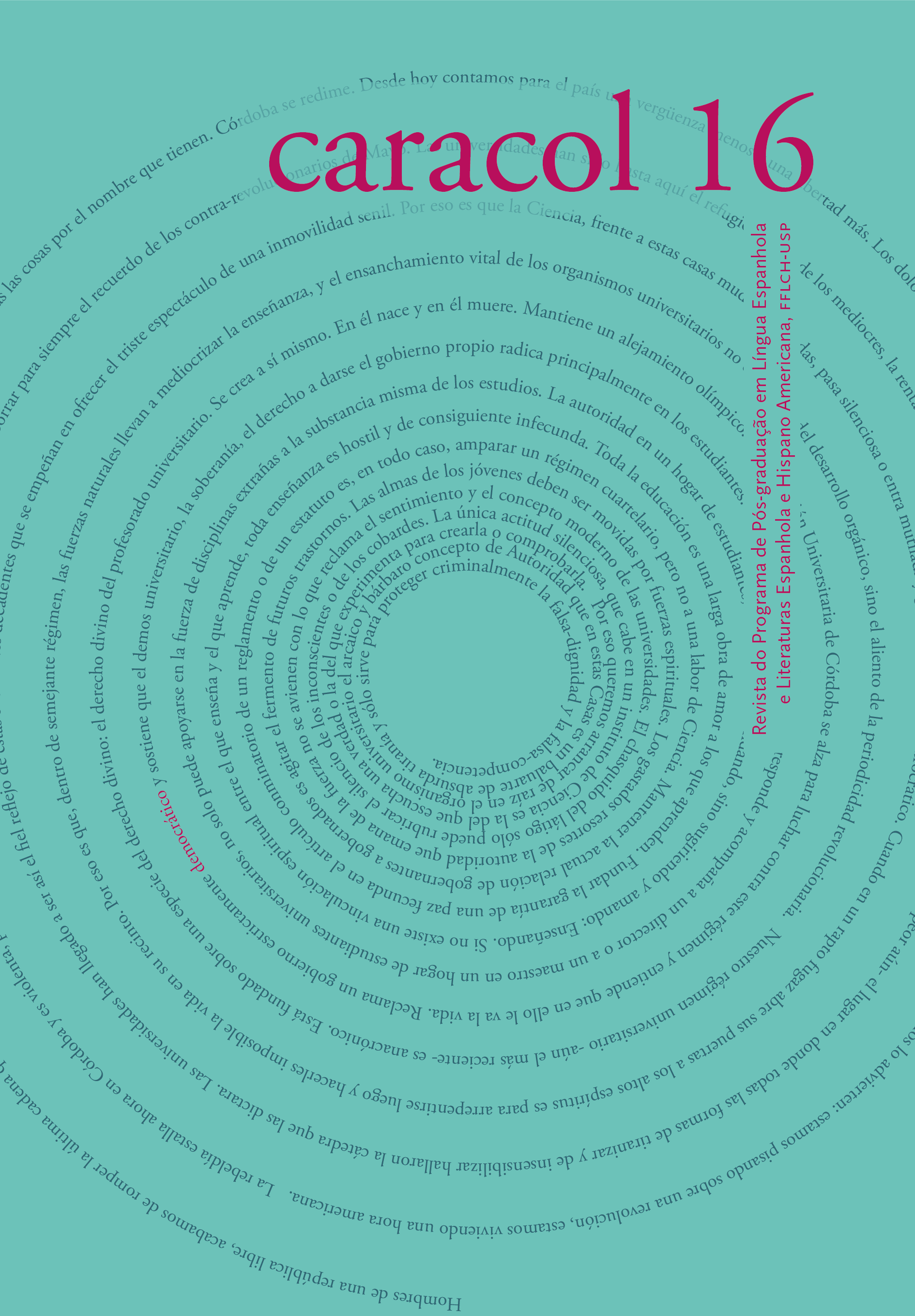The reason(s) of language(s) in knowledge production and in higher education
DOI:
https://doi.org/10.11606/issn.2317-9651.v0i16p190-216Keywords:
Languages, English, Production of knowledge, Higher educationAbstract
The present article addresses issues concerned with the functioning, even in terms of the production of knowledge, and in higher education, of the premise that “English is the universal language of science”. In regard to that, after approaching the reasons why this monolingual premise proposition must be objected, it brings a new set of proposals focusing on the question that, in the contemporary academic debate, it becomes fundamental to reflect on the functioning of language and opens space for the multiple languages in the practices that are present on those spheres mentioned.
Downloads
References
Arnoux, Elvira Narvaja de. Minorización linguística y diversidad em torno al español y al portugués como lenguas científicas. In: Rinesi, E. (ed.). Hombres de una América Libre. Univesidad, inclusion social e integración cultural em Latinoamérica. Buenos Aires: Universidad Nacional de General Sarmiento, 2016.
Baldini, Lauro J. Discurso e cinismo. In: Mariani, B.; Medeiros, V. (orgs.). Discurso e... Rio de Janeiro: 7Letras-Faperj, 2012, p. 103-112.
Hamel, Rainer Enrique. El campo de las ciencias y la educación superior entre el monopolio del inglés y el plurilingüismo: Elementos para una política del lenguaje en América Latina. In: Cadernos de Lingüística Aplicada, 52.2, 2013, 321-384. Disponível em: <http://www.scielo.br/scielo.php?script=sci_arttext&pid=S0103-18132013000200008>. Acesso em: 21 fev. 2017.
______. Los flujos del imperio. La construcción del monopolio del inglés en el campo de las ciencias y la educación superior – Alternativas desde América Latina, México: manuscrito, 2016. Disponível em: <http://hamel.com.mx/Archivos-Publicaciones/Hamel-2016-Los-flujos-del-imperio.pdf>. Acesso em: 21 fev. 2018.
Milner, Jean-Claude. (1978). O amor da língua. (Trad. Paulo S. de Souza Jr.). Campinas: Editora da Unicamp, 2012.
Nóvoa, António. Em busca da Liberdade nas Universidades, é tempo de dizer “não”. In: Revista da ADUSP, 60, maio de 2017.
Orlandi, Eni. A linguagem e seu funcionamento. São Paulo, Editora Brasiliense, 1983.
______. Interpretação, autoria, leitura e efeitos do trabalho simbólico. Rio de Janeiro: Vozes, 1996, 63-78.
Tatián, Diego. La lengua del saber. In: Página/12. Buenos Aires: Editorial La Página, 2012. Disponível em: <https://www.pagina12.com.ar/diario/universidad/10-206420-2012-10-26.html>. Acesso em: 20 fev. 2018
Zoppi-Fontana, Mónica. Slow science: A temporalidade da ciência em ritmo de “impacto”. In: Revista Leituras, v. 2., n. 56, 2015, 223-257.
Downloads
Published
Issue
Section
License
Copyright (c) 2018 María Teresa Celada

This work is licensed under a Creative Commons Attribution-NonCommercial 4.0 International License.
Authors who publish in this journal agree to the following terms:
- Authors retain copyright and grant the journal the right of first publication, with the work simultaneously licensed under a Creative Commons Attribution License, which permits the dissemination of the work with recognition of authorship and initial publication in this journal.
- Authors are allowed to enter into additional contracts separately for non-exclusive use of the version of the work published in this journal (such as publication in an institutional repository or as a book chapter), with recognition of authorship and initial publication in this journal.
- Authors are allowed and encouraged to publish and distribute their work online (e.g., in institutional repositories or on their personal page) at any point before or during the editorial process, as this can generate productive changes, as well as increasing the impact and citation of the published work (see The effect of open access…).




